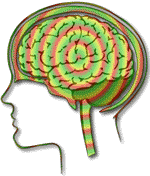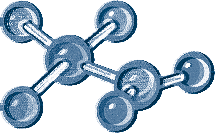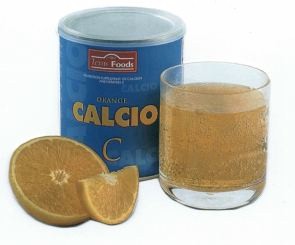California Avocados are a fresh, natural, wholesome part of a healthful diet. They’re irresistibly rich in flavor and, avocados also provide vital nutrients and phytochemicals. Diets rich in fruits and vegetables may reduce the risk of some types of cancer and other chronic diseases.
rich in flavor and, avocados also provide vital nutrients and phytochemicals. Diets rich in fruits and vegetables may reduce the risk of some types of cancer and other chronic diseases.
There are 13 vitamins that the body absolutely needs: vitamins A, C, D, E, K and the B vitamins (thiamine, riboflavin, niacin, pantothenic acid, biotin, vitamin B-6, vitamin B-12 and folate). Avocados naturally contain many of these vitamins.
- MONOUNSATURATED FATS (3g per serving) – Helps to lower blood cholesterol if used in place of saturated fats.
- VITAMIN K (6.3 mcg/8% DV per serving) – Vitamin K is a fat-soluble vitamin that plays an important role in blood clotting. It is known as the clotting vitamin, because without it blood would not clot. Some studies indicate that it helps in maintaining strong bones in the elderly.
- FOLATE (27 mcg/8% DV per serving) – Promotes healthy cell and tissue development. This is especially important during periods of rapid cell division and growth such as infancy and pregnancy. Folate is also essential for metabolism of homocysteine and helps maintain normal levels of this amino acid.
- POTASSIUM (140 mg/4% DV per serving) – In the body, potassium is classified as an electrolyte. Potassium is a very important mineral to the human body. It has various roles
 in metabolism and body functions and is essential for the proper function of all cells, tissues, and organs: It assists in the regulation of the acid-base balance; assists in protein synthesis from amino acids and in carbohydrate metabolism; and, it is necessary for the building of muscle and for normal body growth.
in metabolism and body functions and is essential for the proper function of all cells, tissues, and organs: It assists in the regulation of the acid-base balance; assists in protein synthesis from amino acids and in carbohydrate metabolism; and, it is necessary for the building of muscle and for normal body growth. - VITAMIN E (1.2 IU/4% DV per serving) – A fat-soluble vitamin that acts as an antioxidant that protects the body tissue from damage caused by unstable substances called free radicals. Free radicals can harm cells, tissues, and organs. They are believed to play a role in certain conditions associated with aging. Vitamin E is important in the formation of red blood cells and helps the body use vitamin K. At lower levels, vitamin E may help protect the heart. Vitamin E also plays a role in healthy skin and hair.
- LUTEIN (81.3 mcg) – A carotenoid (a natural pigment) that may be associated with a lower risk of eye diseases. Lutein is an important antioxidant that may help your eyes stay healthy while maintaining the health of your skin. It provides nutritional support to your eyes and skin and has been linked to promoting healthy eyes through reducing the risk of macular degeneration, the leading cause of blindness in adults 65 years of age and older.
- MAGNESIUM (8.7 mg/2% DV per serving) –An essential mineral for human nutrition. Magnesium in the body serves several important functions: Contraction and relaxation of
 muscles; Function of certain enzymes in the body; Production and transport of energy; and Production of Protein.
muscles; Function of certain enzymes in the body; Production and transport of energy; and Production of Protein. - VITAMIN C (2.4 mg/4% DV per serving) –A water-soluble vitamin that is necessary for normal growth and development. Vitamin C is one of many antioxidants. Antioxidants are nutrients that block some of the damage caused by free radicals, which are by-products that result when our bodies transform food into energy. Vitamin C is required for the growth and repair of tissues in all parts of your body. It is necessary to form collagen, an important protein used to make skin, scar tissue, tendons, ligaments, and blood vessels.
- VITAMIN B6 (0.080 mg/4% DV per serving) –A water-soluble vitamin. Water-soluble vitamins dissolve in water. The body cannot store them. That means you need a continuous supply of such vitamins in your diet. Vitamin B6 helps the immune system produce antibodies. Antibodies are needed to fight many diseases. Vitamin B6 helps maintain normal nerve function and form red blood cells. The body uses it to help break down proteins. The more protein you eat, the more vitamin B6 you need.
Avocados are included in dietary programs from some of the world’s leading nutrition organizations:
- USDA’s Dietary Guidelines for Americans
- Produce for Better Health Foundation Fruits & Veggies—More Matters® Program

- American Diabetes Association’s Diabetes Food Pyramid
- UCLA Center for Human Nutrition’s California Cuisine Food Pyramid
- Oldways Preservation & Exchange Trust’s Mediterranean, Vegetarian and Latin American Diet Pyramids and Med Mark Program
- The DASH (Dietary Approaches to Stop Hypertension) Diet Eating Plan
Now that you’ve got the scoop, get a spoon and dig in!



 Improving Brain Function
Improving Brain Function Because the brain cells are largely composed of fat, the right kinds of fat in the diet are one of the most critical elements in creating and maintaining brain health. The same precious Omega-3 fatty acids that promote healthy hearts can also help our brains. Primary sources of those health-giving fats are fatty cold-water fish including salmon, mackerel, anchovies, sardines, herring and Atlantic sturgeon. Eat fish a minimum of three times a week. Canola, olive and flax-seed oil are good plant sources of Omega-3 fatty acids, with flax seeds, which can also be ground and added to foods, being the supreme, most recommended source.
Because the brain cells are largely composed of fat, the right kinds of fat in the diet are one of the most critical elements in creating and maintaining brain health. The same precious Omega-3 fatty acids that promote healthy hearts can also help our brains. Primary sources of those health-giving fats are fatty cold-water fish including salmon, mackerel, anchovies, sardines, herring and Atlantic sturgeon. Eat fish a minimum of three times a week. Canola, olive and flax-seed oil are good plant sources of Omega-3 fatty acids, with flax seeds, which can also be ground and added to foods, being the supreme, most recommended source. Because the brain in made up largely of fatty acids, it is susceptible to oxidation damage caused by free radicals - highly reactive molecules that attack and damage cell membranes, protein and even our genetic code - and in doing so bring about age and 'dis-ease'. Antioxidants are nutrients which combat and neutralize free radicals. The primary weapons in this ongoing fight are vitamins C and E, carotenoids and the mineral selenium. Many foods are rich sources of antioxidants. Carotenoids are found in dark orange and dark green leafy vegetable, such as carrots, sweet potatoes, kale and spinach. Vitamin C is found in citrus fruits and vegetable like broccoli and peppers. Vitamin E is found in seeds and nuts as well as soybeans and vegetable oils. Selenium is present in seafood, grains and Brazil nuts. Supplementation or reinforcement of antioxidants is recommended since they are the major police force of the body, thought to deflect virtually all chronic 'dis-eases' including heart disease, cancer, cataracts, Parkinson's and the aging process itself.
Because the brain in made up largely of fatty acids, it is susceptible to oxidation damage caused by free radicals - highly reactive molecules that attack and damage cell membranes, protein and even our genetic code - and in doing so bring about age and 'dis-ease'. Antioxidants are nutrients which combat and neutralize free radicals. The primary weapons in this ongoing fight are vitamins C and E, carotenoids and the mineral selenium. Many foods are rich sources of antioxidants. Carotenoids are found in dark orange and dark green leafy vegetable, such as carrots, sweet potatoes, kale and spinach. Vitamin C is found in citrus fruits and vegetable like broccoli and peppers. Vitamin E is found in seeds and nuts as well as soybeans and vegetable oils. Selenium is present in seafood, grains and Brazil nuts. Supplementation or reinforcement of antioxidants is recommended since they are the major police force of the body, thought to deflect virtually all chronic 'dis-eases' including heart disease, cancer, cataracts, Parkinson's and the aging process itself.